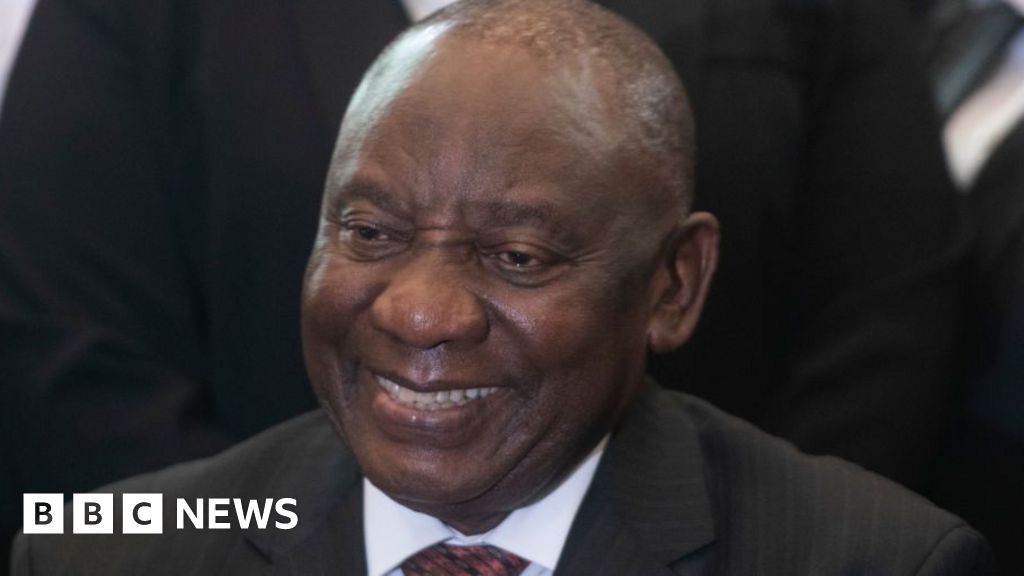South Africa’s President Cyril Ramaphosa is back for another term! He was just sworn in for his second time as president, but things aren’t going to be easy.
Even though his party, the ANC, didn’t get enough votes to win on their own, Ramaphosa made a deal with other parties to form a government.
This is a big change for South Africa. The ANC has been in power for a long time, since the end of apartheid.
So what are some of the challenges facing Ramaphosa this time around? The economy isn’t doing so well, and there are problems with crime and unemployment.
Ramaphosa will need to work hard to fix these issues, and he’ll need the help of all the parties in the new government.
Get ready for an interesting few years for South Africa it’s going to be a tough job, but Ramaphosa is ready for the challenge!
A Second Term Amidst Challenges
Cyril Ramaphosa, the president of South Africa, is starting his second term. He’s got a lot to do! The last election wasn’t easy for his party, the African National Congress (ANC), and they even lost their majority in parliament. But, they made a deal with other parties to form a government, so Ramaphosa is back in charge.
This second term comes with big challenges. South Africa’s economy is struggling. It’s got problems like power cuts, lots of crime, and many people are out of work. Ramaphosa is promising to fix these things and make the country stronger.
The world is watching to see if Ramaphosa can succeed. He has to find ways to make the economy better, fight crime, and create more jobs for people. It’s not going to be easy, but he’s got a lot of support from people in South Africa and around the world.
Coalition Government: A Shift in South African Politics
The election in South Africa was quite different this time. The ANC, the party that has been in charge for a long time, didn’t get enough votes to rule alone. This is new for South Africa!
So, to make a government, they had to join forces with another big party called the DA, and some smaller groups. This is called a coalition government, where different parties work together.
This shows that South African politics are changing. It’s not just one party in charge anymore. It means the new government will need to listen to more people and try to please everyone.
The Economic Agenda: Can Ramaphosa Turn the Tide?
Ramaphosa is back for a second term, but the real challenge is fixing South Africa’s economy. It’s been struggling for a while, with problems like not enough power and a lot of people without jobs. People are hoping Ramaphosa can do something to make things better.
He’s got a lot of work to do, though. Some people are worried because the ANC, the party he leads, lost some of its power in the recent elections. This means he’ll need to work with other parties to make things happen.
But there’s also some hope. Ramaphosa promised to create more jobs and help small businesses grow. He also wants to make sure everyone has enough power to use. If he can keep those promises, it might just be the start of a brighter future for South Africa.
Inauguration Ceremony: A Celebration of Unity and Change
The inauguration of South Africa’s President was a big event! People from all over the world came to watch the ceremony. There was music, singing, and even soldiers marching. It was a celebration of the country coming together and getting ready for a new beginning.
The new President is ready to work hard to make South Africa a better place. Everyone is excited to see what changes will happen. The people of South Africa are hopeful that their new leader will help them have a better life.
The ceremony wasn’t just about one person, it was about everyone in South Africa. It was a time to celebrate being South African and working together to make the country stronger.
As Cyril Ramaphosa embarks on his second term as South Africa’s president, a lot of challenges await him.
From fixing the struggling economy to tackling high crime rates and unemployment, he has a lot on his plate.
Ramaphosa’s path to reelection was unique, as he had to form a coalition government with other parties since the ANC, his party, didn’t win a majority in the elections.
This partnership with other parties, especially the Democratic Alliance, signals a shift towards a more united political landscape, but it also means navigating different viewpoints.
The eyes of the world are on Ramaphosa and his plans to address South Africa’s problems.
His inaugural address will likely outline his vision for the country, and it will be interesting to see how he approaches these challenges in the years ahead.
Will he be able to lead South Africa out of its economic woes and deliver on promises of a brighter future? Time will tell.
